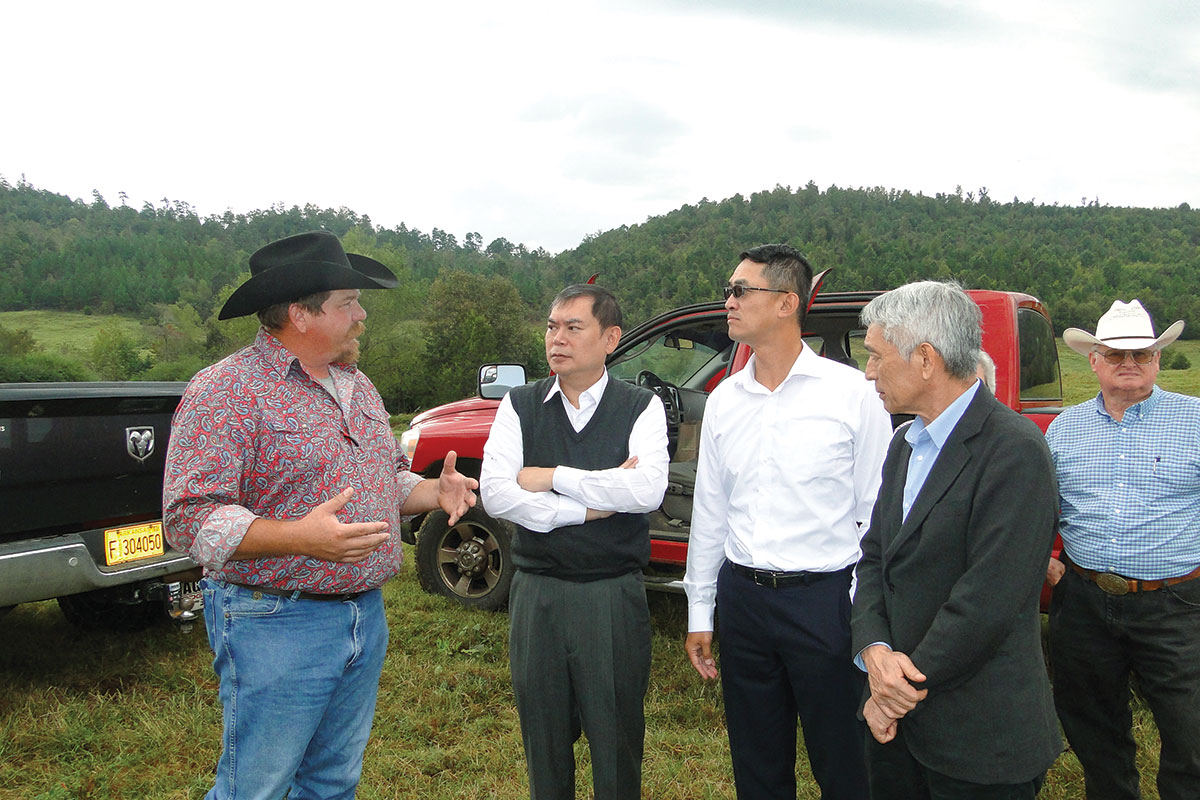
In 2006 James and Elaine Couch sold their home and bought 211 acres in Colcord, Okla. The couple’s goal was to raise free-range cows, chickens and hogs as well as the meat goat herd they brought with them, with the intent of making naturally raised food affordable for everybody. They currently have a commercial cattle herd of 28 momma cows, 20 yearlings and 20 calves and are steadily improving the quality of the herd with Beefmaster genetics.
Not long after the Couches purchased the ramshackle Colcord property, James was diagnosed with cancer. A friend came and helped for about a year and a half after they first purchased the land and James was undergoing cancer treatments. Help now comes from a brother in Gentry, Ark. Elaine grinned and said, “He leaves us a list of what needs to get done before he comes back the next time, and we appreciate every bit of it.” The couple has also received help from their church and friends.
Not long after they arrived, James saw his first Beefmaster and was amazed by the size. He credits his neighbor, who raises registered Beefmasters, as being an indispensable help with his herd. Concerned about the chance of a Couch bull getting away and breeding his cows, the neighbor offered his bull for their use. James said, “Nobody does that. You can’t find neighbors like that.”
When selecting Beefmaster the deciding factors were gentleness, good birth weights, very good growth and excellent meat.
James used his neighbor’s bull as well as buying two Beefmaster heifers in the first two years and then bought a Beefmaster bull with great papers but who was affordable because he was black and white. He still has several different kinds of cows but keeps moving towards a stronger Beefmaster genetic make-up especially with a new, traditionally colored Beefmaster bull.
James said, “The biggest challenge we had was just getting started.”
One area that did go well for them was water. None of their six wells dried up during the drought. They also have three ponds and a creek that runs through their place, which they have fenced off as part of riparian conservation with help from NRCS. They have the first NRCS funded solar panel watering system in eastern Oklahoma for pumping water from the creek to their cows.
The goats are also working well for them. James researched goats for two years before beginning his meat goat herd. James said, “Demand was on a good, steady incline making the goats a valid business.” Other advantages come from the goat herd as well. One is that the goats will eat what the cattle will not which allows optimal use of the land. The other is that the parasites for each species is dead-ended in the other species by co-pasturing.
The Couches are looking forward to a future that includes increasing their cattle herd and adding Mangalitsa hogs, a large hog with high quality, healthy meat. James said, “We want to help other people by keeping prices affordable while still being able to make a living. Networking with others may help us reach our goal.”







